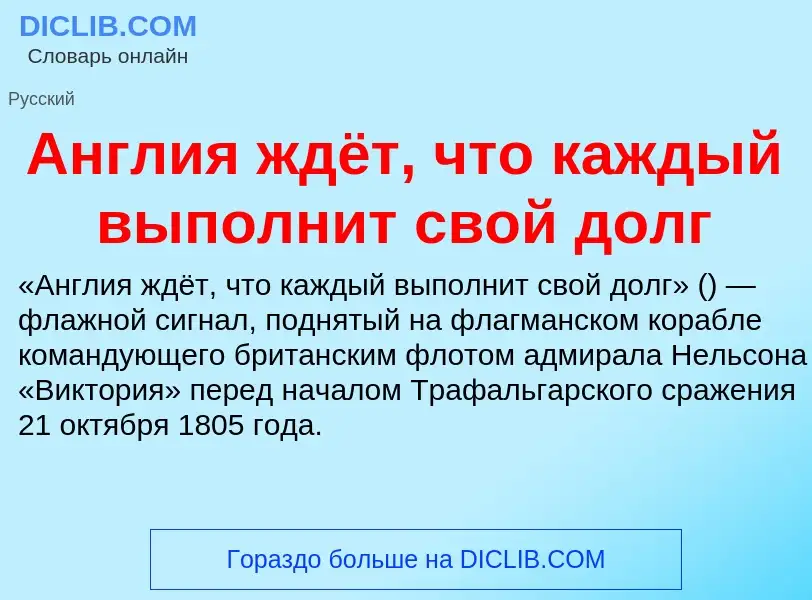Enter a word or phrase in any language 👆
Language:
Translation and analysis of words by ChatGPT artificial intelligence
On this page you can get a detailed analysis of a word or phrase, produced by the best artificial intelligence technology to date:
- how the word is used
- frequency of use
- it is used more often in oral or written speech
- word translation options
- usage examples (several phrases with translation)
- etymology
What (who) is на каждый приходится - definition
Раз на раз не приходится (фильм)
Англия ждёт, что каждый выполнит свой долг
«Англия ждёт, что каждый выполнит свой долг» () — флажной сигнал, поднятый на флагманском корабле командующего британским флотом адмирала Нельсона «Виктория» перед началом Трафальгарского сражения 21 октября 1805 года.
Каждый охотник желает знать, где сидит фазан
«Каждый охотник желает знать, где сидит фазан» — мнемоническая фраза для запоминания последовательности цветов радуги и цветов спектра (многоцветной полосы, похожей на радугу, которая получается при прохождении солнечного луча через треугольную стеклянную призму):
Где Фред?
«Где Фред?» (; в российском прокате: «На колёсах») — немецкий фильм режиссёра , премьера которого состоялась 16 ноября 2006 года (мировая).
Wikipedia
Раз на раз не приходится

«Раз на раз не приходится» — комедийный, сатирический художественный фильм режиссёра Араика Габриэляна.
Examples of use of на каждый приходится
1. Причем если оценивать число новых записей, то с английским языком успешно конкурирует японский - они почти равны, на каждый приходится примерно треть записей.



